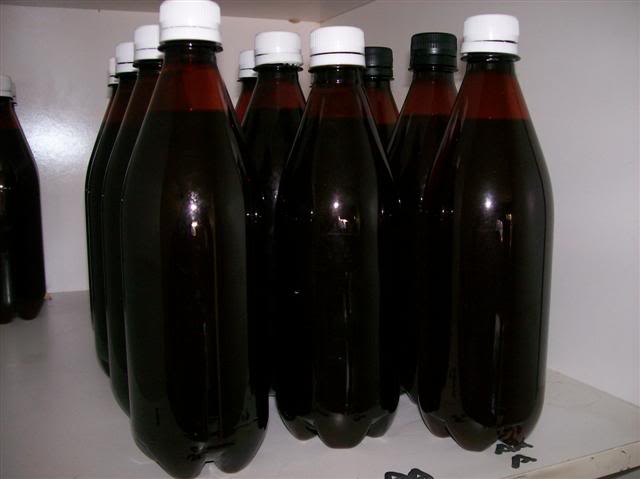Bulk Priming
Recently I primed a few bottles with dextrose which made me realize why I have been bulk priming for years. The dextrose not wanting to come out of the little red measurer then spilling onto the outside of the bottle and everywhere else. Uneven amounts going into each bottle. The time and trouble it took to fill just a few bottles and so on.
Now I know I am not very dextrous with dextrose or anything else, many home brewers can prime individual bottles far better and quicker than I can. However bulk priming has its advantages. It is a faster, less chance of infection, more accurate and consistent in my experience.
So what do you need? All you need is a set of scales to weigh the priming sugar and a bottling bucket, which means another fermenter. Weigh out the dextrose, add about a quarter litre of water and boil for 10 minutes. Let this cool then add to your sanitised bottling bucket. Next, gently run your beer into bottling bucket. To be sure that it is mixed well you can stir it gently with a sanitised brewer’s spoon or, like I do, gently rock the bucket so the beer circulates and mixes with the priming sugar. Let it stand for a minute or two. Now you can fill your bottles the same as usual. Lots of “gently’s” but you don’t want to oxidise your beer.
The next question is how much priming sugar do you need? The answer is “It depends”. I have seen 180 grams for a 20-22 litre batch mentioned many times. This will give you very highly carbonated beer unless you drink it in less than a few weeks. The following is a guide a general guide for 20-22 litre batches that are going to be aged for a month or more.
If you want a low to moderate carbonation then 50-70 grams of dextrose is enough. This is good for many English and Scottish ales.
For medium carbonation 80-90 grams is all you need. This suits many styles such as Vienna lagers, Munich Dunkels, brown ales, porters, stouts and so on.
Beers such as Pilsners and APA’s need 100-120 grams.
Most wheat beers and Belgian styles need high carbonation so 130-150 grams would be a good starting point.
If you are unsure about the level of carbonation needed for any style check http://www.bjcp.org/docs/2008_Guidelines.pdf . Under “Mouthfeel” the general level of carbonation needed for that style is given.
Another reason to bulk prime is that it makes it easy to add yeast at priming. Wheat beers and high gravity beers can be pretty brutal on the their yeasts so adding some rehydrated dried yeast to the priming bucket can ensure the desired carbonation. The priming sugar will not carbonate your beer very well without healthy yeast. A flat beer leaves me flat.
If you have some priming tips and tricks you wish to share let us know about them.
Brew Well
Barry Cranston
